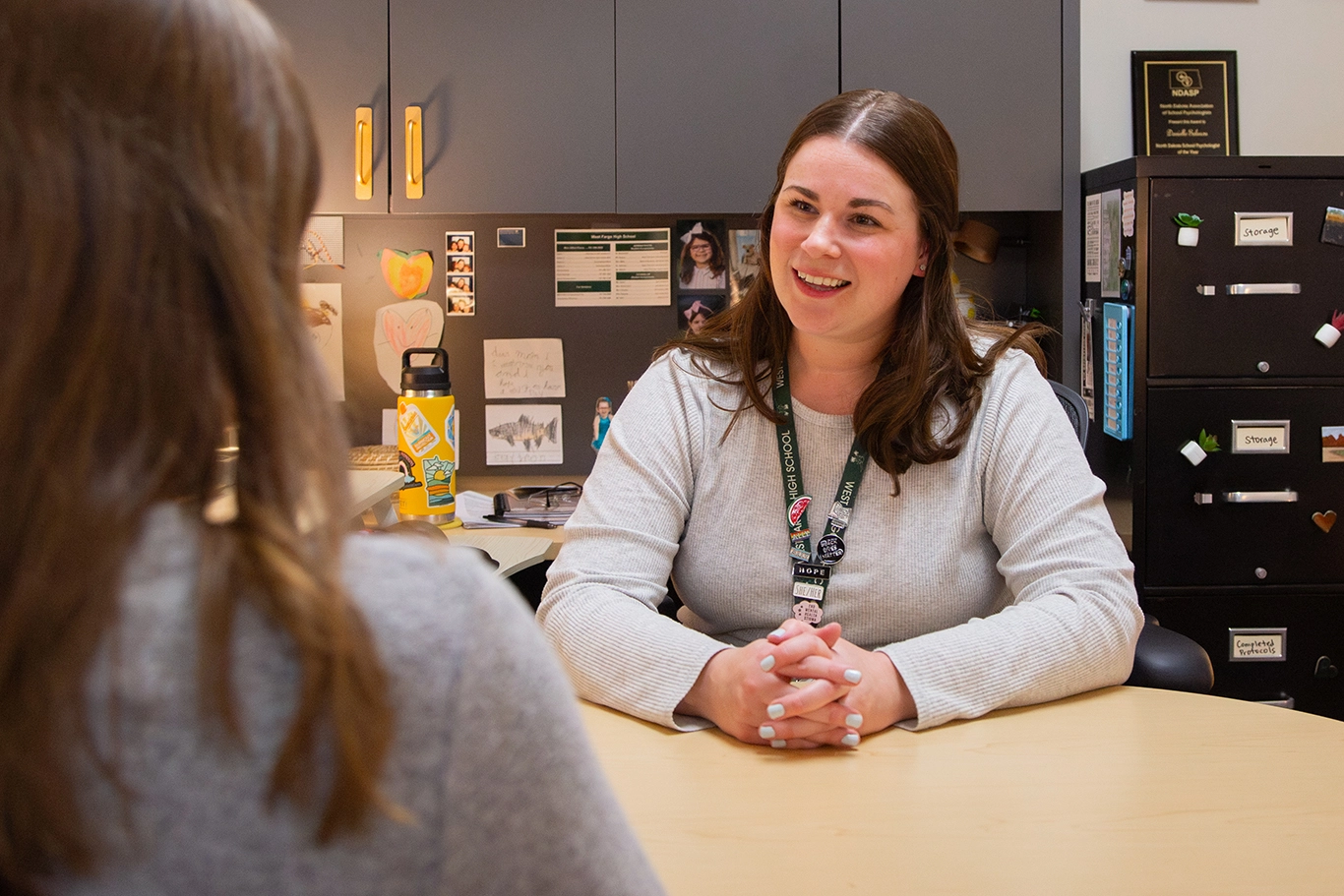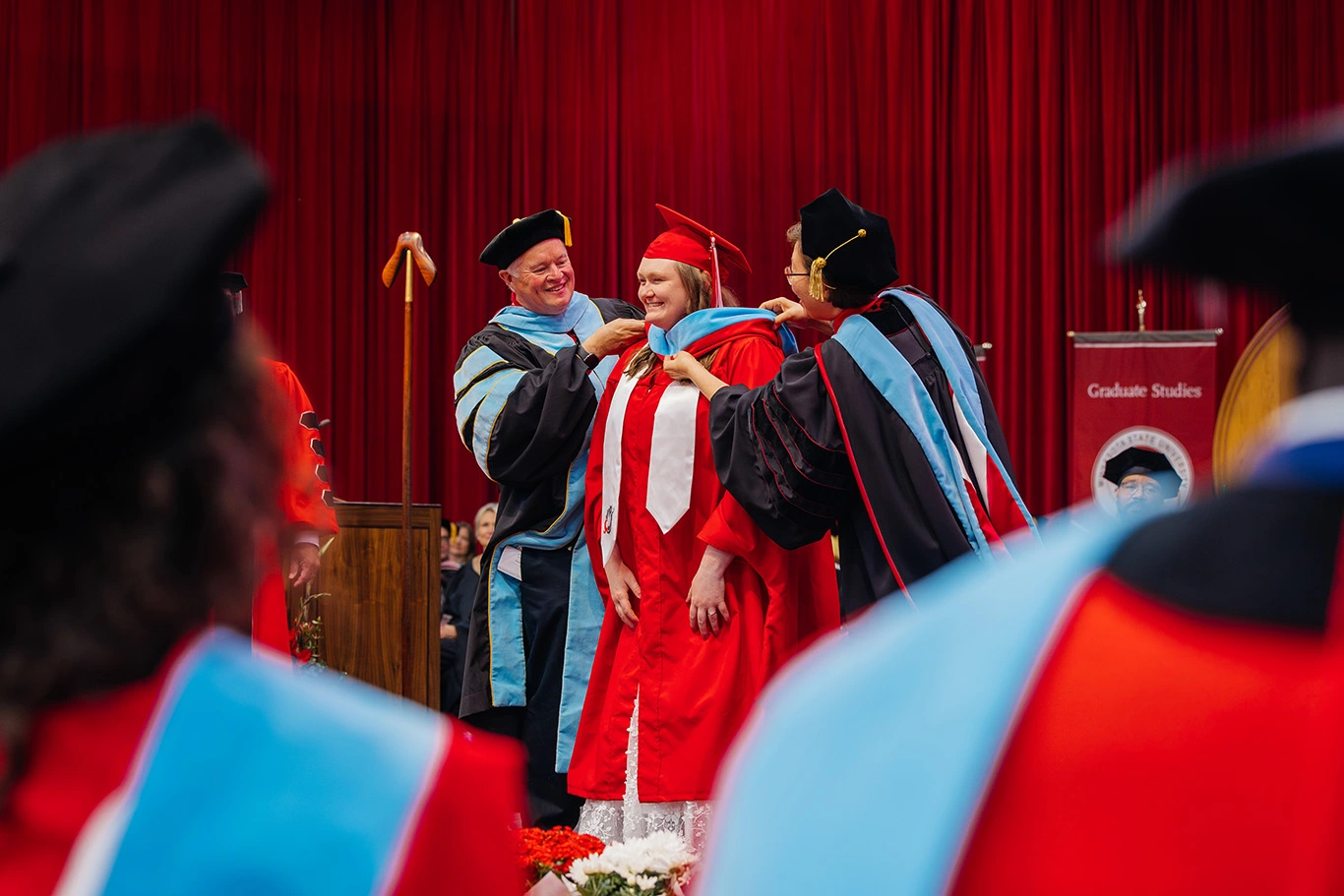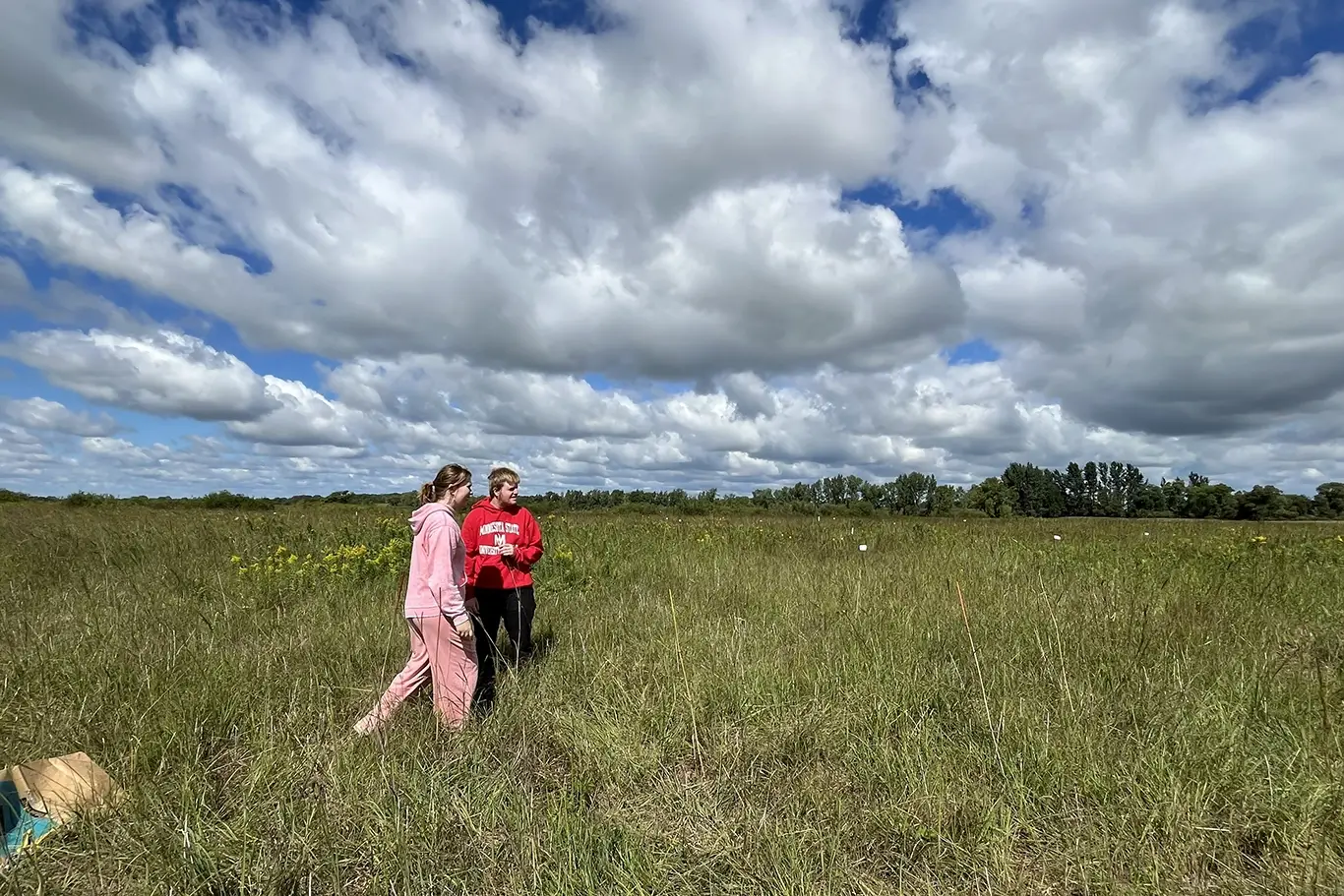AI in Healthcare Means Better Patient Care and Outcomes
MSUM Researchers Identify Adoption Hurdles, Offer Change-Management Approach
Jennifer Thompson never looked forward to her biennial mammogram. The exam was uncomfortable, to say the least; often, “painful” would be more descriptive.
Even so, the anxiety she felt when the results came back positive was almost worse, not to mention the physical pain of the biopsy that the results necessitated.
Fortunately, the biopsy showed the mammogram result was a false positive. That was good, of course, but Jennifer could have avoided extra emotional and physical trauma if the exam had been more accurate in the first place, accuracy that artificial intelligence (AI)-enabled diagnostic technologies could have delivered.
MSUM School of Nursing & Healthcare Leadership
The work of two Minnesota State University Moorhead (MSUM) professors and a Moorhead middle-school student aims to expedite the AI adoption process to improve outcomes for patients like Jennifer and across the healthcare system.
Where We’ve Been With AI and How To Move Forward
Jennifer isn’t real, but her theoretical experience represents what all too many women have and continue to go through.
According to the Susan G. Komen Breast Cancer Foundation, “The chance of having a false positive result after one mammogram ranges from 7-12 percent…Younger women are more likely to have false positive results. After 10 yearly mammograms, the chance of having at least one false positive result is about 50-60 percent.”
Meanwhile, the American Cancer Society reports that AI increases mammogram accuracy to 99 percent.
Unfortunately, said Brandi Sillerud, MSUM researcher and coordinator of the Master of Healthcare Administration (MHA) program, there is often a “huge lag” in technology and process adoption in healthcare.
“It can take up to 17 years for research to reach the bedside, but we simply do not have the time or personnel to keep doing things how we've been doing them,” she said. “The costs of healthcare keep rising, too, so there’s an urgency to adopt AI technologies that improve efficiency and quality.”
Sillerud is part of an MSUM team working with 15 healthcare organizations to identify barriers to AI adoption and recommend strategies for expediting it. Jitendra Singh, the co-chair of MSUM’s School of Nursing and Healthcare Leadership, and Advitya Singh, an 8th grader at Moorhead’s Horizon Middle School, are her research partners.
In December 2023, the Journal of Medical Artificial Intelligence published the trio’s paper about the first phase of their four-phase research initiative related to AI adoption and using an established change-management system to facilitate it.
Phase 1 involved compiling a history of AI in healthcare, examining adoption rates and exploring how it’s currently used. While previous research covered some of the same ground, the MSUM team expanded upon it, presenting Kotter’s 8-Step Process for Leading Change and recommending ways administrators, clinicians and staff members can use change management to incorporate AI into daily operations.
The next three phases will comprise one-on-one discussions, led by MHA students, with clinical providers, non-clinical staff and administrators, analysis and more recommendations to address what the interviews uncover.
Earlier Detection, More Personalized Care
AI is already applied in healthcare, with chatbots that answer questions and direct calls being the most noticeable examples, but the MSUM researchers say its significance for patients is much broader and goes much deeper.
“It’s transformational,” said Jitendra Singh. “AI’s impacts can be seen in patient engagement and education, identification of patterns from patient data, more accurate diagnoses, enhanced prognosis formulation, treatment planning and long-term condition management and administrative cost-containment. More importantly, it’s increasing the time providers can spend directly with patients.”
Sillerud, also a registered nurse and health informatics expert, notes that AI is driving advances in rural healthcare, which is a big deal in states like North Dakota and Minnesota.
Sillerud and Singh teach health information courses for undergraduate and graduate students in health administration, nursing and business administration.
“We want our students to use AI such as ChatGPT to work smarter,” Sillerud said. “When they leave our program as providers and leaders, they’ll already understand how AI can enhance what they do.”
Like eliminating nearly all false positives from mammograms.
And that will be a relief to Jennifers everywhere.
Make Sure Your Story Is Heard
Let us know how your life has been changed by being a Dragon: tell us your Minnesota State Moorhead story today!
Send Us Your Story


